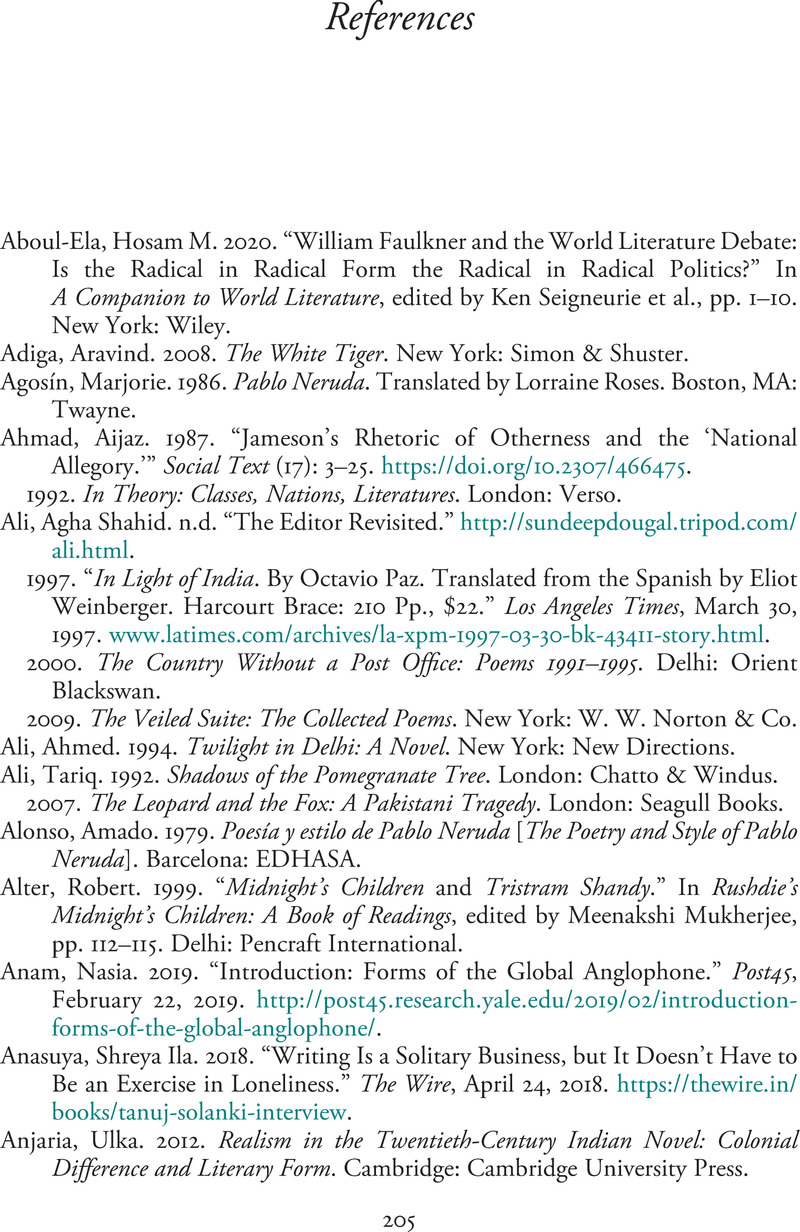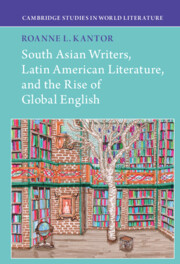Book contents
- South Asian Writers, Latin American Literature, and the Rise of Global English
- Cambridge Studies in World Literature
- South Asian Writers, Latin American Literature, and the Rise of Global English
- Copyright page
- Dedication
- Contents
- Figures
- Acknowledgments
- Introduction
- Chapter 1 Transmigrant
- Chapter 2 Stranger
- Chapter 3 Displacee
- Chapter 4 Pilgrim
- Chapter 5 Revenant
- Epilogue
- Notes
- References
- Index
- References
References
Published online by Cambridge University Press: 17 February 2022
- South Asian Writers, Latin American Literature, and the Rise of Global English
- Cambridge Studies in World Literature
- South Asian Writers, Latin American Literature, and the Rise of Global English
- Copyright page
- Dedication
- Contents
- Figures
- Acknowledgments
- Introduction
- Chapter 1 Transmigrant
- Chapter 2 Stranger
- Chapter 3 Displacee
- Chapter 4 Pilgrim
- Chapter 5 Revenant
- Epilogue
- Notes
- References
- Index
- References
Summary

- Type
- Chapter
- Information
- Publisher: Cambridge University PressPrint publication year: 2022



